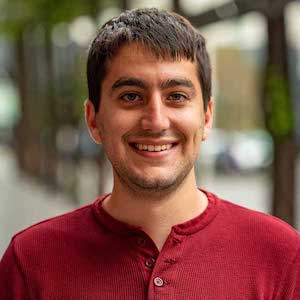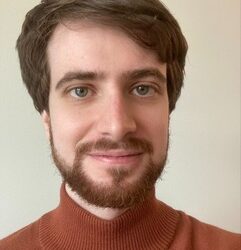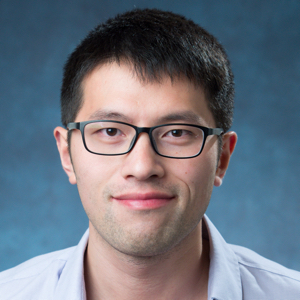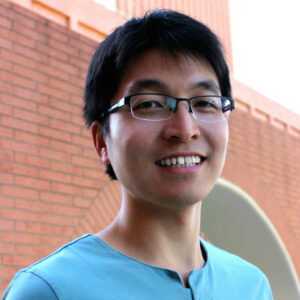Data, AI, and Society
Ethics
Fairness
Accountability
Transparency
Bias
Decision Making
Policy & Law
Algorithmic and Data Equity and Access
Data Economy
Data and Social Sciences
Digital and Generative Humanities & Art
Data Science Education
Faculty
-

Luís M. A. Bettencourt
Professor, Department of Ecology and Evolution; Associate Faculty, Department of Sociology -

Aloni Cohen
Assistant Professor of Computer Science and Data Science -

Raul Castro Fernandez
Assistant Professor, Computer Science -

Michael J Franklin
Morton D. Hull Distinguished Service Professor; Faculty Co-Director, Data Science Institute and Committee on Data Science; Senior Advisor to the Provost for Computation and Data Science -

Greg Green
Associate Senior Instructional Professor; Director of MS in Applied Data Science Program; Senior Director of Industrial Partnerships and Strategy -

Ari Holtzman
Assistant Professor of Computer Science and Data Science -

Veronika Rockova
Professor of Econometrics and Statistics at the Booth School of Business -

Nathan Srebro
Professor, Toyota Technological Institute at Chicago; Professor, Department of Computer Science -

Chenhao Tan
Assistant Professor of Computer Science and Data Science -

David Uminsky
Executive Director, Data Science Institute; Senior Research Associate, Department of Computer Science -

Blase Ur
Neubauer Family Assistant Professor of Computer Science -

Molly Offer-Westort
Assistant Professor, Department of Political Science -

Haifeng Xu
Assistant Professor of Computer Science and Data Science
Luís M. A. Bettencourt is the Pritzker Director of the Mansueto Institute for Urban Innovation and Professor of Ecology and Evolution at the University of Chicago, as well as an External Professor of Complex Systems at the Santa Fe Institute. He was trained as a theoretical physicist and obtained his undergraduate degree from Instituto Superior Técnico (Lisbon, Portugal) in 1992, and his PhD from Imperial College (University of London, UK) in 1996 for research in statistical and high-energy physics models of the early Universe. He has held postdoctoral positions at the University of Heidelberg (Germany), Los Alamos National Laboratory (Director’s Fellow and Slansky Fellow) and at MIT (Center for Theoretical Physics). He has worked extensively on complex systems theory and on cities and urbanization, in particular. His research emphasizes the creation of new interdisciplinary synthesis to describe cities in quantitative and predictive ways, informed by classical theory from various disciplines and the growing availability of empirical data worldwide. He is the author of over 100 scientific papers and several edited books. His research has been featured in leading media venues, such as the New York Times, Nature, Wired, New Scientist, and the Smithsonian.
Aloni Cohen is an Assistant Professor of Computer Science and Data Science at the University of Chicago. Previously, Cohen was a Postdoctoral Associate at Boston University, with a joint appointment at the Hariri Institute for Computing and the School of Law. His research explores the interplay between theoretical cryptography, privacy, law, and policy. Aloni earned his PhD in electrical engineering and computer science at MIT where he was advised by Shafi Goldwasser and supported by a Facebook Fellowship and an NSF Graduate Student Fellowship. Aloni is a former affiliate at the Berkman Klein Center for Internet & Society and a Fellow at the Aspen Tech Policy Hub.
My research explores the interplay between theoretical cryptography, privacy, law, and policy. Specifically, I aim to understand and resolve the tensions between the theory of cryptography and the privacy and surveillance law that governs its eventual real-world context. Right now, I’m thinking about differential privacy, GDPR, the Fifth Amendment, encryption, multiparty computation, and the Census.
In my research, I ask what is “the value of data” and explore the potential of data markets to unlock that value. My group collaborates with economists, legal scholars, statisticians, and domain scientists. We build systems to share, discover, prepare, integrate, and process data. I have traditionally worked on distributed query processing systems and continue to do so. I have received a SIGMOD’23 Test-of-time-Award for my PhD work.
Michael J. Franklin is the Morton D. Hull Distinguished Service Professor for the Department of Computer Science. He held the inaugural title of Liew Family Chair of Computer Science until September of 2023. An authority on databases, data analytics, data management and distributed systems, he also serves as senior advisor to the provost on computation and data science.
Previously, Franklin was the Thomas M. Siebel Professor of Computer Science and chair of the Computer Science Division of the Department of Electrical Engineering and Computer Sciences at the University of California, Berkeley. There, he co-founded Berkeley’s Algorithms, Machines and People Laboratory (AMPLab), a leading academic big data analytics research center. The AMPLab won a National Science Foundation CISE “Expeditions in Computing” award, which was announced as part of the White House Big Data Research initiative in March 2012, and received support from over 30 industrial sponsors. AMPLab created industry-changing open source Big Data software including Apache Spark and BDAS, the Berkeley Data Analytics Stack. At Berkeley, he also served as an executive committee member for the Berkeley Institute for Data Science, a campus-wide initiative to advance data science environments.
An energetic entrepreneur in addition to his academic work, Franklin founded and became chief technology officer of Truviso, a data analytics company acquired by Cisco Systems. He serves on the technical advisory boards of various data-driven technology companies and organizations.
Franklin is a Fellow of the Association for Computing Machinery and a two-time recipient of the ACM SIGMOD (Special Interest Group on Management of Data) “Test of Time” award. His many other honors include the outstanding advisor award from Berkeley’s Computer Science Graduate Student Association. He received the Ph.D. in Computer Science from the University of Wisconsin in 1993, a Master of Software Engineering from the Wang Institute of Graduate Studies in 1986, and the B.S. in Computer and Information Science from the University of Massachusetts in 1983.
Greg Green is Senior Instructional Professor and Director of the MS in Applied Data Science Program at the University of Chicago, and Senior Director for Industrial Partnerships and Strategy at the Data Science Institute. Dr. Green helps the University of Chicago professional data science students learn to apply data science to solve complex industry problems with greater impact.
Dr. Green is reshaping the content and approaches used to educate the next generation of professional data scientists at the University of Chicago. Additionally, Greg is designing new, creative offerings more deeply connected to MS and PhD research programs in Data Science, Computer Science, Statistics, and Financial Mathematics. New course offerings developed launched since joining the University of Chicago include an innovative approach to “Leadership in Data Science and Artificial Intelligence”, “Consulting in Data Science” and “Your Career in Data Science”.
Throughout his professional career, Greg has used his expertise in digital strategies, business analytics, and new product development to drive rapid revenue growth and accelerate business transformation. His previous work bringing innovation to an academic environment included authoring a Marketing Analytics course, designing a pre-requisite applied statistics course and serving as a lecturer for Marketing Analytics at Northwestern University.
Greg’s industry roles include Chief Analytics Officer at Harland Clarke Holdings, Director at Google, EVP/Managing Director at Publicis Groupe, and Analytics Practice Lead at PwC. Greg’s patented cloud-based media analytics platform was highlighted in Harvard Business Review and Fast Company.
Greg holds a Doctor of Philosophy in Mathematics from Claremont Graduate School and a Master of Science in Statistics from Michigan State University. Born in Owosso, Michigan, Greg is married to Jill, an artist, and their adult children include two more artists, a teacher, and an engineer. Greg and his family enjoy snowboarding, snow/water skiing and live theatre—as well as good food and friendships. Their passion for the environment is reflected in a love for Lake Michigan where they like to spend as much of the summer as possible.
Ari is an incoming Assistant Professor of Computer Science and Data Science, starting July 2024.
His research has focused broadly on generative models of text: how we can use them and how can we understand them better. His research interests have spanned everything from dialogue, including winning the first Amazon Alexa Prize in 2017, to fundamental research on text generation, such as proposing Nucleus Sampling, a decoding algorithm used broadly in deployed systems such as the OpenAI API. With the new wave of powerful generative models being continually released, Ari has argued for using the lens of Complex Systems to understand generative models of human media, suggesting that a lack of precise behavioral vocabulary to describe what language models are doing is the bottleneck to explaining how language models are capable of such impressive performance on a range of tasks. He completed his PhD in Computer Science at the University of Washington studying “Interpretation Errors” in how we understand generative models after an interdisciplinary degree at NYU combining Computer Science and the Philosophy of Language.
Veronika Rockova is a Professor of Econometrics and Statistics and the James S. Kemper Faculty Scholar at the Booth School of Business at the University of Chicago. She joined Booth after completing her postdoctoral training in statistics at the Wharton School of the University of Pennsylvania. She teaches a course on Big Data at Booth. Her research interests lie at the intersection of statistics and machine learning, with a primary focus on creating innovative decision-centric tools for extracting insights from extensive datasets. She specializes in Bayesian computation, high-dimensional decision theory, and hierarchical modeling. Her applied areas of interest include healthcare analytics and computational medicine. Her research was acknowledged with the National Science Foundation CAREER Award in 2020 and the COPPS Emerging Leader Award in 2023. She currently serves as an associate editor for the Annals of Statistics, Journal of the American Statistical Association, and Journal of the Royal Statistical Society. Beyond her academic pursuits, Veronika is an avid pianist, tennis enthusiast, and golf neophyte.
Dr. Srebro is interested in statistical and computational aspects of machine learning, and the interaction between them. He has done theoretical work in statistical learning theory and in algorithms, devised novel learning models and optimization techniques, and has worked on applications in computational biology, text analysis and collaborative filtering. Before coming to TTIC, Dr. Srebro was a postdoctoral fellow at the University of Toronto and a visiting scientist at IBM Research.
Chenhao Tan is an assistant professor at the Department of Computer Science and the UChicago Data Science Institute. His main research interests include language and social dynamics, human-centered machine learning, and multi-community engagement. He is also broadly interested in computational social science, natural language processing, and artificial intelligence.
David Uminsky joined the University of Chicago in September 2020 as a senior research associate and Executive Director of Data Science. He was previously an associate professor of Mathematics and Executive Director of the Data Institute at University of San Francisco (USF). His research interests are in machine learning, signal processing, pattern formation, and dynamical systems. David is an associate editor of the Harvard Data Science Review. He was selected in 2015 by the National Academy of Sciences as a Kavli Frontiers of Science Fellow. He is also the founding Director of the BS in Data Science at USF and served as Director of the MS in Data Science program from 2014-2019. During the summer of 2018, David served as the Director of Research for the Mathematical Science Research Institute Undergrad Program on the topic of Mathematical Data Science.
Before joining USF he was a combined NSF and UC President’s Fellow at UCLA, where he was awarded the Chancellor’s Award for outstanding postdoctoral research. He holds a Ph.D. in Mathematics from Boston University and a BS in Mathematics from Harvey Mudd College.
Blase Ur is an assistant professor of computer science at the University of Chicago. He founded the UChicago SUPERgroup, an interdisciplinary research collective whose research spans computer security, privacy, ethical AI, and human-computer interaction (HCI). The SUPERgroup is especially interested in developing data-driven methods and tools that support users’ security and privacy decisions, as well as their interactions with complex computer systems. The group’s work has been supported by nine National Science Foundation grants, as well as grants from Mozilla Research, Meta, Google, and the Data Transparency Lab.
Blase (whose name is pronounced “blaze”; he/him pronouns) has received the Quantrell Award for Undergraduate Teaching (2021), NSF CAREER Award (2021), SIGCHI Outstanding Dissertation Award (2018), and a Fulbright Scholarship (2010). His work has received four best/distinguished paper awards, as well as five honorable mentions for best paper. He earned a PhD in 2016 from Carnegie Mellon University’s Societal Computing program, where he was advised by Lorrie Cranor, and an AB in computer science from Harvard University in 2007. He is also a musician, photographer, (theatre) designer, and avid bicyclist.
Molly Offer-Westort works on quantitative methodology for social science research, with a focus on causal inference and experimental design. Offer-Westort’s PhD is joint in Political Science and Statistics & Data Science, conferred by Yale University in 2019; Offer-Westort also holds a Masters in Statistics, also from Yale, and a Masters in Public Affairs, from the Princeton School of Public and International Affairs.
At Yale, Offer-Westort worked in collaborative research labs with Peter Aronow, Gregory Huber, and Forrest Crawford. In the summer of 2018, she interned with Facebook’s Core Data Science team.
Haifeng Xu is an assistant professor in the Department of Computer Science and the Data Science Institute at UChicago. He directs the Strategic IntelliGence for Machine Agents (SIGMA) research lab which focuses on designing algorithms/systems that can effectively elicit, process and exploit information, particularly in strategic environments. Haifeng has published more than 55 publications at leading venues on computational economics, machine learning and theoretical computer science, such as EC, ICML, NeurIPS, STOC and SODA. His research has been recognized by multiple awards, including the Google Faculty Research Award, ACM SIGecom Dissertation Award (honorable mention), IFAAMAS Victor Lesser Distinguished Dissertation Award (runner-up), Google PhD fellowship, and multiple best paper awards.
The following research themes are the recent focus of our research lab. Please refer to our lab’s website for more details.
- The economics of data/information, including selling, acquiring, and exploiting information
- Machine learning in multi-agent setups under information asymmetry, incentive conflicts, and deception
- Resource allocation in adversarial domains, with applications to security and privacy protection